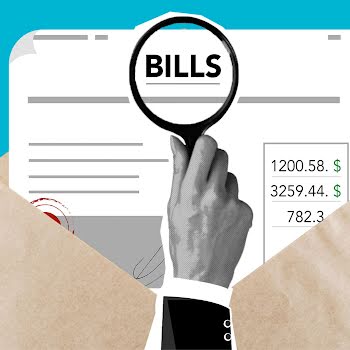Work smarter, not harder: four secrets to being more productive at work
Want to be more productive at work? It's time to start working smarter, writes Jenny Darmody.
We all want to be productive in work. We want to hit the ground running at work and be as productive as possible. But it’s these times that we have to be most careful not to overwork and stress ourselves out.
It’s no secret that stress leads to a severe drop in productivity but that doesn’t mean we always think about this in practice. In fact, when we’re feeling stressed because we have a lot to do, we’re more likely to try and power through, skip lunch and scramble to get everything done without taking breaks.
But not only is this a terrible idea for your brain and your health, but it will actually have the opposite effect you’re hoping for. You may get a lot done, but it won’t be your best work. So, when you’re faced with a lot on your plate, how do you make sure you really listen to all that good advice about taking regular breaks and find the perfect balance between being productive and avoiding stress?
Advertisement
Put breaks into your to-do list
We’re going to skip the tip that says ‘take regular breaks’ because we know you already know that… but how can you stay disciplined enough to actually take those breaks? If you’re a slave to your own to-do list, physically writing breaks in as ‘to-dos’ can be very effective.
When you’re writing out your daily to-do list, make sure you put in a short break after each big task and be sure to include your lunch in there as well. Getting into the habit of only ticking off those breaks when you’ve actually taken them is a good trick for those determined to clear the decks. If you’re a virtual list-maker, consider adding pop-up reminders to your routine. You wouldn’t ignore one about a meeting so why ignore one about a much-needed break?
Additionally, it’s important to make sure your breaks, both quick five-minute ones and full-hour lunches, are actual breaks. The break is worthless if you spend it checking your work emails. If you need something to focus on, consider a puzzle, a book, or a bit of colouring to take your brain away from work.
Structure your time better
Something I’ve found particularly effective is to reset how I think about overworking. I needed to tell myself that working late or through lunch is not a sign that I’m a good worker, it’s actually a sign that I’m bad at time management. This was a good enough motivator to think about how I could restructure my time better.
Advertisement
This will require you to know how you work best because it differs from person to person. Are you better at tackling big tasks in the morning and using your afternoon for creative thinking or do you work better when you settle into the day slowly? Once you know how you work best, you can start restructuring your to-do list to reflect this.
It’s also a good idea to spend a bit of time figuring out how some tasks could be sped up. It’s tempting to continue working the way you’ve always worked because it’s quicker than having to think of a new system, but taking the time to become more efficient is always worth it.
Don’t get into task debt
Put simply, task debt is when you continuously carry over a number of tasks on a daily, weekly and even monthly basis, constantly promising yourself you’ll get to them. It may seem like a harmless act, but the longer you put these tasks off, the heavier they become in our minds and, whether you realise it or not, they create deep-seated anxiety and stress as you try to chip away at a list you know will never be complete.
The best way to fix this problem is to temporarily take those long-term tasks off your to-do list and focus on the most pressing things you need to get done. Once you’ve successfully gotten on top of your more pressing tasks, you can evaluate those older ‘debt’ tasks. Why aren’t they done yet? How important are they really? What would happen if you just never got to them?
If any of these long-term tasks that you’ve been carrying around like a weight can be scrapped, you should do it. It’s incredibly freeing and will help you refocus your mind. For those that you have to get to, consider adding them back in one at a time in order of priority and see if you can make a better gap in your schedule to actually tackle them.
Advertisement
Know when to ask for help
Finally, whether you’re drowning beneath a to-do list, have a lot of fires to put out or simply need a little breathing room to get back on top of things, it’s important to ask for help when you need it.
A good tool to help you prioritise your tasks is the Eisenhower Matrix, in which you separate tasks into four categories: do now, schedule for later, delegate and eliminate. As part of scheduling your time better, you should be able to figure out which tasks need to be done immediately and which ones you can push. Ditching the tasks you don’t need to do at all is the elimination process but it’s important not to forget about delegating.
If you have too many urgent tasks to do and you can’t possibly get them all done in the time you have, it’s important to ask for help. When there’s plenty to do and not enough time to do it all, most colleagues will be willing to pitch in when necessary so don’t try to do everything yourself if you’re drowning in work.
Jenny Darmody works as an editor at Silicon Republic, and formerly worked as a journalist specialising in all things career-related and work-life balance. This article was originally published in 2020. Photography by Unsplash.
Advertisement























